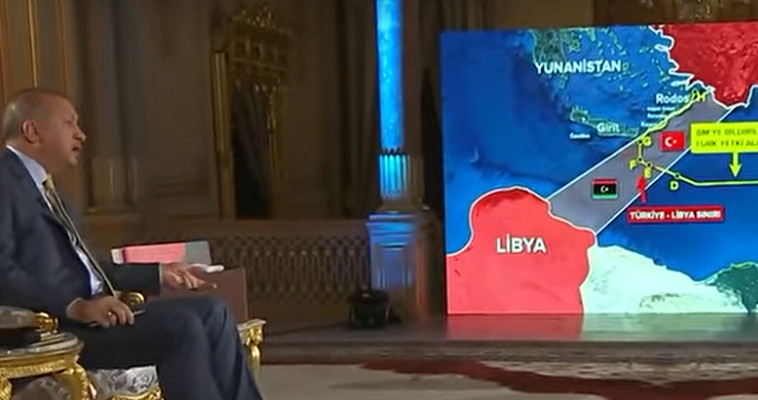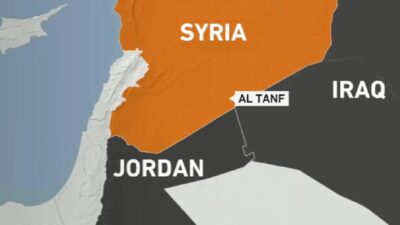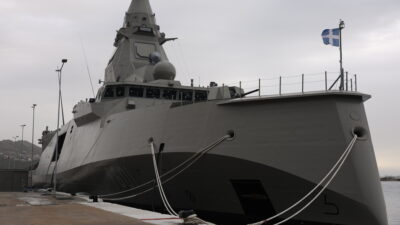Thodoros Rakkas: Is Turkey’s time approaching? – Hubris and Nemesis
28/06/2020
199 years ago the poorest province of the Ottoman Empire revolted. This revolution led to the creation of the new Greek state. Just 100 years later, in 1921, the armies of this state found themselves advancing into the depths of Anatolia. Their purpose was one, declared and imprinted in the collective conscious and subconscious.
This purpose was the reconstruction of the “Eastern Roman Empire”, which fell in 1453, leading to four centuries of enslavement. However, this project failed for a number of reasons, the analysis of which is not the subject of the current article. One of them was the general discontent of the international system of the time, with the idea of the regional domination of Hellenism in the (unified according to the Western perception) region of the Eastern Mediterranean. The consequence of the Greek defeat was the genesis of modern Turkey.
But the winner of the conflict, post-Ottoman Kemalist Turkey, was clearly economically and demographically exhausted. Most notably, the role of regional overlord enjoyed by the Ottoman Empire had been abandoned. But what is a regional ruler? Briefly, this is a force whose power indicators (economic, military and political), in a particular geopolitical region, are disproportionately greater compared to other countries in the region.
The above makes this state a regulatory factor that enjoys a dominant role in regional issues, as it has the hard and soft power to impose its will. Obviously, the above does not only concern issues of bilateral and multilateral relations, but also the internal balances of the states of each region.
Hamas and the Muslim Brotherhood
Recent developments show that Turkey under Erdogan, guided by the spirit of neo-Ottomanism, is seeking a return to the role of regional overlord. Claiming economic sovereignty, through maritime control (as reflected in the doctrine of the “Blue Homeland”), is the spearhead of the Turkish “return”.
More so if the potential energy resources of the region are taken into account. In addition, to trying to control Libya (an issue fully connected to the “Blue Homeland”), Turkey has critical assets within other powerful states in the region. I am referring, of course, to Israel and Egypt. Erdogan, on the one hand, actively supports Palestinian organizations, most notably Hamas, and on the other hand is the patron of the Muslim Brotherhood. The Palestinians of Hamas and the Muslim Brotherhood represent, respectively, the primary threats to the internal security and cohesion of these states.
Undoubtedly, full Turkish domination of the Eastern Mediterranean basin is leading Israel to a gradual dependence on Turkey for its security. Egypt will even face the risk of regime change. The above is well known. After all, the memories of the Morsi presidency and the threat of a revision of the Israel-Egypt peace treaty are still fresh.
Strategic “hostage” of Turkey
As for Russia, the Kremlin is embroiled in a “strategic hostage” relationship with the Erdogan regime in Syria. However, Russia does not take kindly to the establishment of a Turkish regional hegemony. Among other things, such a development would call into question not only Moscow’s upgraded regional regulatory role, but also its dominant position on Europe’s energy supply.
In terms of Western interests, Turkish domination of the region hands the keys to European energy security to Ankara with all that entails for European and American planning. Still, it seems that any economic interests are not enough to “tame” Turkish appetites. So here is the reasonable question: Why so much tolerance for Turkey and its hegemonic aspirations?
The short answer is as follows: Skepticism prevails over the choice of conflict in order to bring Turkey into line. The main reason is the transitional global situation, which is leading international and regional powers to a defensive introversion and reluctance. The above is evident in the examples of Israel and Egypt.
While the interests of both countries are being affected strategically and in the long run, fear (of internal unrest in Egypt) makes them hesitant about the possibility of an open confrontation with Ankara, at least for now. Also, the perception of the identification of Turkish revisionism with the immoderate neo-Sultan Erdogan is still widespread.
The warnings of history
As a result, everyone is reluctant to completely sever their ties with Turkey, hoping for normalization in the post-Erdogan era. To the above, let’s add Greek strategic inadequacy. Because it is the state most directly affected by Turkish expansionism, the Greek establishment should understand and explicitly state that Ankara’s behavior does not depend on individuals, but is systemic with historical, geopolitical and even cultural implications.
Instead, Greek elites try to placate the “beast”, while begging for help at the same time! Inevitably, the Turkish leader is given the impression that whatever he does will be tolerated. The above perception is strongly reminiscent of another revisionist leader, who, taking advantage of seemingly favorable circumstances, extorted situations and created fait accomplis. Everyone knows how that story ended.
I would venture to draw a parallel with events that took place about a century ago. In 1922, Greece exceeded its limits, finally suffering a painful defeat. This defeat indelibly marked Hellenism. It would not be an exaggeration to say that its consequences still haunt us to this day. Like the revolution of 1821 and the beginning of the disintegration of the Ottoman Empire still haunt Turkey.
The coming nemesis
In closing, I would like to point out that history is relentless. Those who commit hubris, despising its teachings, inevitably suffer from “Nemesis”. Today, 200 years after the Greek revolution and 100 years since the birth of modern Turkey, the region of the Eastern Mediterranean is experiencing another recurrence of historical motifs.
The author considers, with all reservations, that Turkey is facing a deafening crash, a century after the establishment of the modern Turkish state. Its actions will inevitably pave the way to drastically reduce its power. Unless we believe that Egypt will tolerate a Libya, with a free field for the Muslim Brotherhood, next to its border and that Israel will depend on its survival on the neo-Ottomans.
Unless we believe that the United States will accept all of the above, combined with complete contempt for their own interests. Or, that the EU will survive after a military action against a Member State left unanswered, while accepting that it is an energy hostage. Or, finally, that Russia will hand over regional sovereignty to Turkey after its coveted exit to the warm seas. The past teaches, among other things, that tolerance never lasts indefinitely.





